Intern Reflections: 2023 Field Season in Review
Tidings | Aug 7, 2023
During summer 2023, nine interns from around the country joined GMRI for our Research Experience for Undergrads program. We also partnered with Quahog Bay Conservancy to add five more interns to support the expansion of our Casco Bay Aquatic Systems Survey work. Read on to hear summer highlights from some of our fantastic interns.
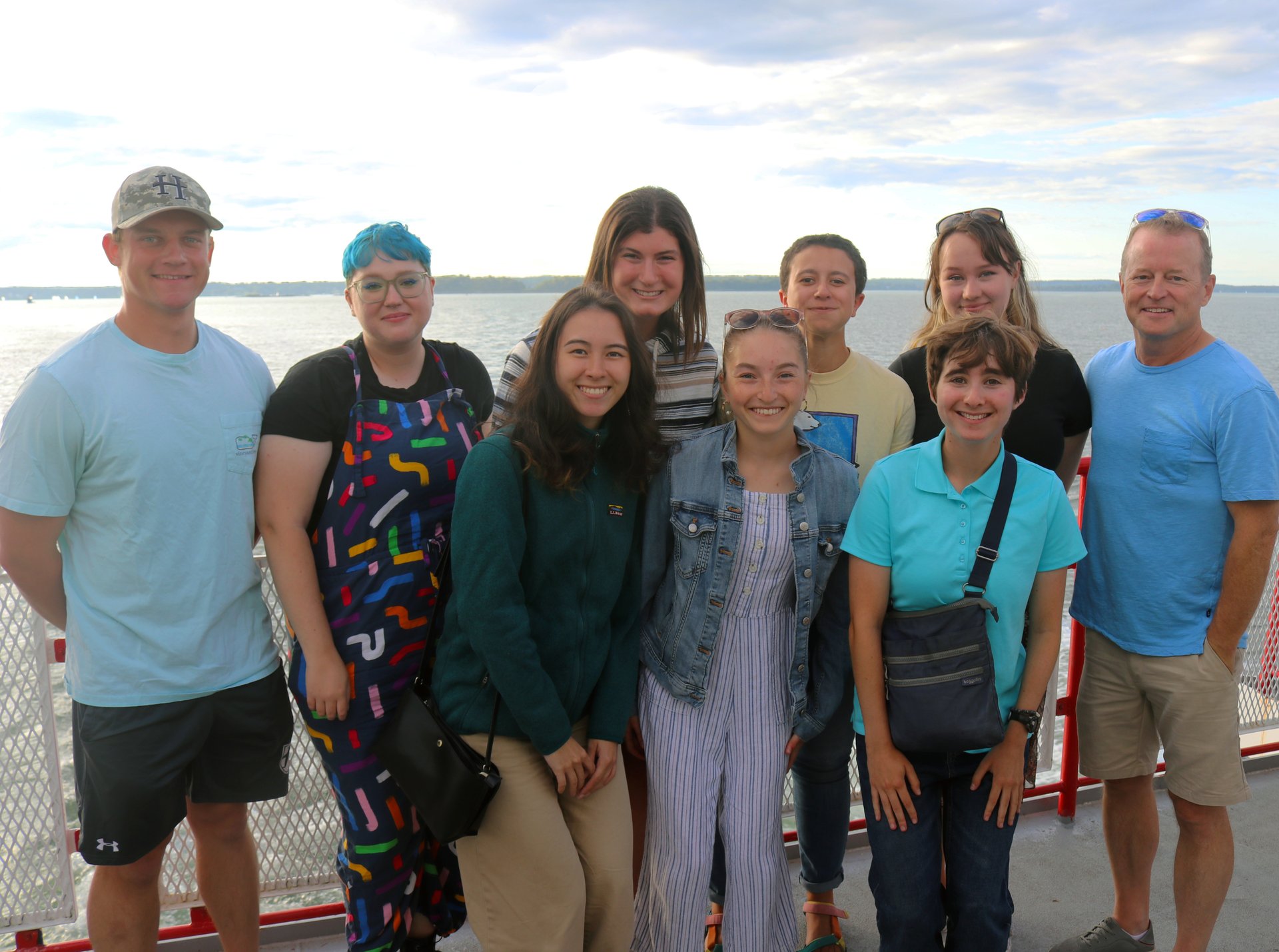
Research Experience for Undergraduates (REU) sites provide students from diverse backgrounds the chance to immerse themselves in their host institutions' research methods and cultures. At GMRI, which is one of nearly 700 NSF-funded REU sites across the country, we introduce students to an exciting diversity of research opportunities in marine fisheries, climate change, sustainable seafood, learning sciences, and more. Students lead projects in these fields, with a particular focus on the impacts of Gulf of Maine warming trends, and develop skills that prepare them for what to expect in graduate school or related research careers.
In addition to our nine REU students, we were also fortunate to partner with Quahog Bay Conservancy (QBC) who supported the expansion of our Casco Bay Aquatic Systems Survey (CBASS) work with five more interns. The two groups of interns both participated in a science communication training course throughout the summer in addition to doing their own research. From comparing fishery data with seafood offerings and messaging at restaurants to quantifying the impact of climate change on quota prices to assessing underwater habitats through video, these interns conducted complex research and presented their findings to cap off the summer.
We spoke to some of these interns to learn a little bit about what they are interested in studying, and any advice they might have for future REU or QBC interns.
Chelsea Moody
My name is Chelsea Moody and I’m from Chelmsford, Massachusetts.
I’m studying Government as well as Earth and Oceanographic Science at Bowdoin College in Brunswick! The intersection between government and science has always fascinated me, and I want to continuously find ways to connect people, policy, and research.
This summer, I’m working on a flood adaptation plan for Union Wharf under the direction of Dr. Hannah Baranes and Dr. Dave Reidmiller. This project has allowed me to do applied research, connecting scientific concepts like sea level rise modeling to flooding of vital infrastructure on the wharf — a real life climate issue.
It’s been amazing to be able to have concrete applications for the work I’m doing! I’ve learned a ton about flood risk this summer, from human management of at-risk utilities to what goes into calculating future storm events.
My advice to other students interested in the REU is to apply! I’ve had amazing opportunities to get out on boats, talk to really cool people at GMRI, and get to know Portland as a city this summer. The environment at GMRI is incredibly welcoming — I couldn’t have asked for a better place to explore research.
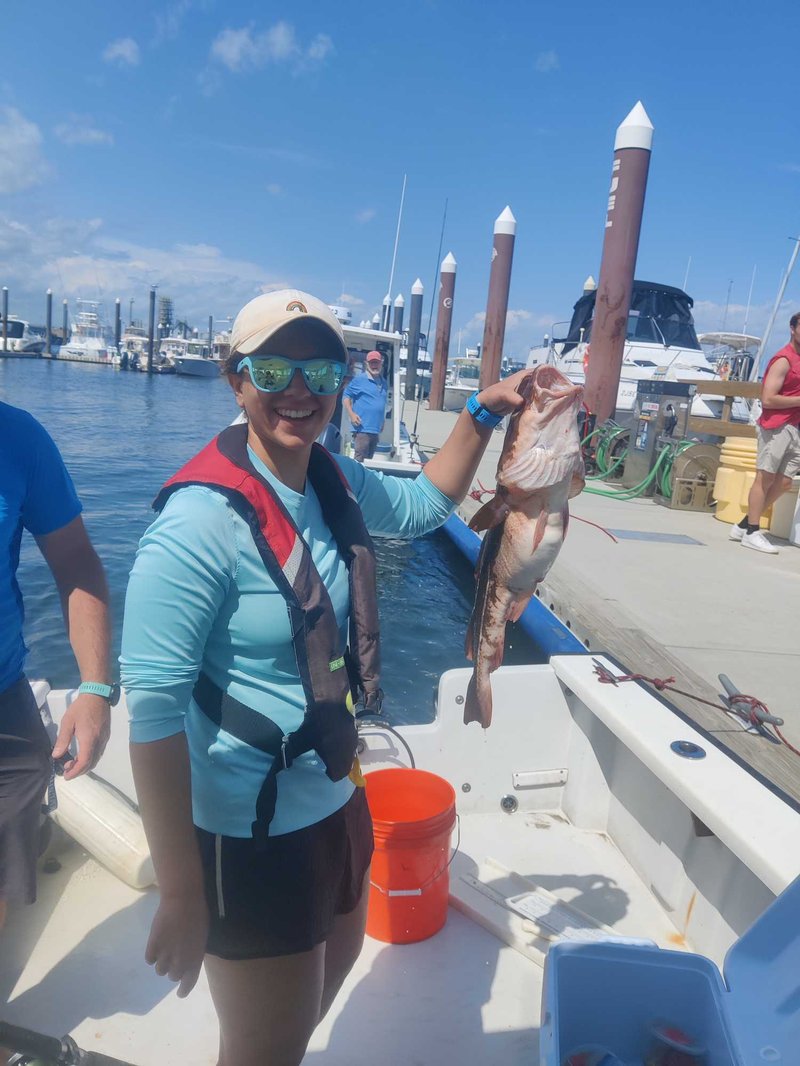
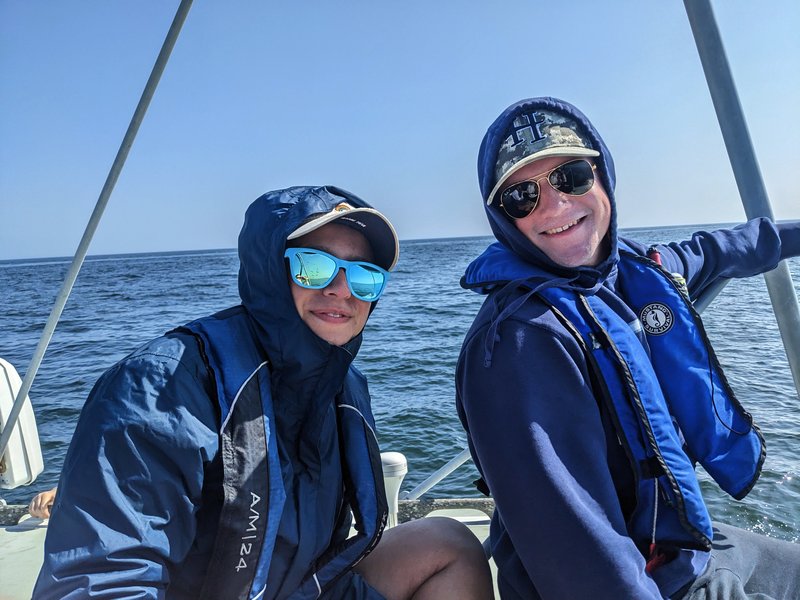
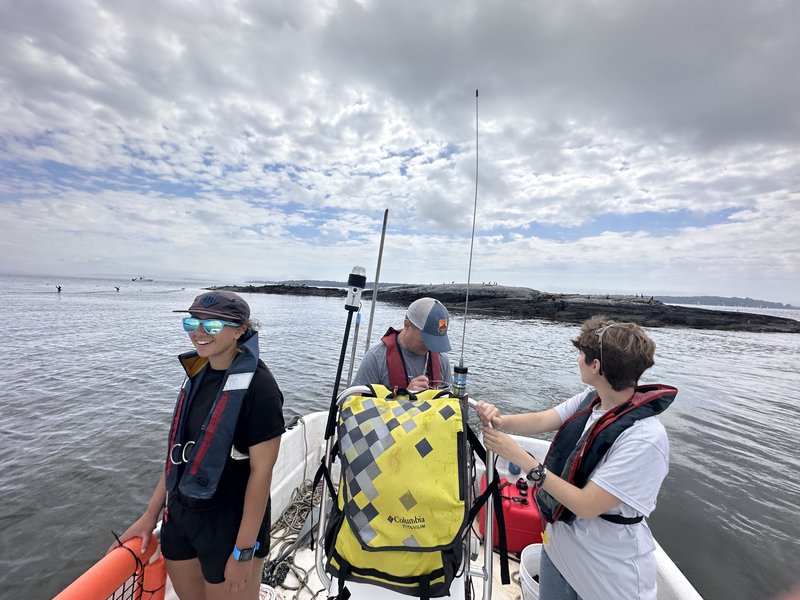
Anna Yankee
I am an environmental studies major at Hamilton College with a focus on food system sustainability.
I became interested in the intersection of food and environmental issues while spending a year in France during high school. I take any opportunity to learn more about and engage in sustainable food systems — whether it be academically, professionally, or in my personal life. I strive to continue working towards tangible, impactful environmental improvements in the food system.
For my research project at GMRI, I studied menus in Portland and Cape Cod to explore how seafood served at restaurants compares with seafood landed locally, especially in the context of warming-related species distribution shifts. I also analyzed messaging on restaurant websites and spoke with several chefs to better understand values, priorities, and challenges in the restaurant industry. I used the data I collected to identify opportunities for New England restaurants to better support local fisheries.
This summer has been full of learning — in many different settings. Here’s just a sampling of memorable lessons: While seining, I learned that fieldwork is best done with a playlist (thanks Aaron!). In my own research, I learned (gradually) that the same fish is often referred to by many different names — it’s confusing! By interacting with the fantastic and friendly GMRI staff, I learned that people take all different paths to find engaging and satisfying careers.
I would urge students to consider applying for the GMRI REU even if they’re not sure how their interests could fit into the research space. Research can be done in many different ways, on many different subjects, and your GMRI mentors will be right there with you.
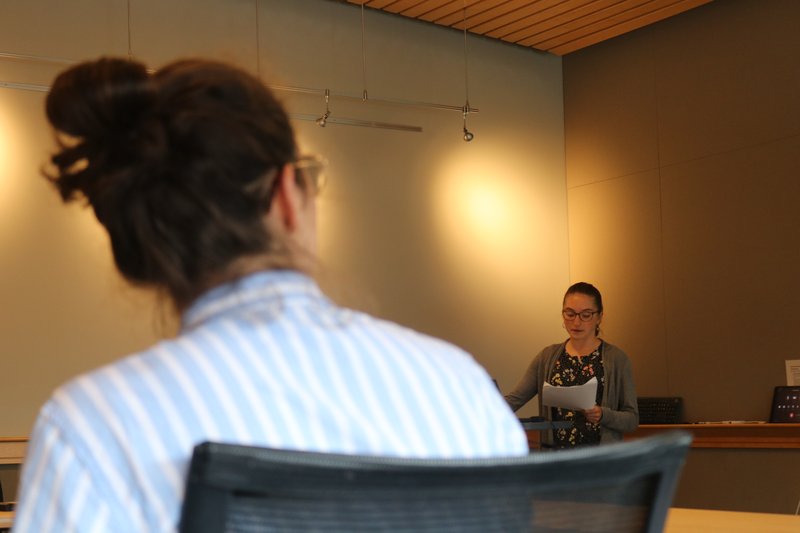
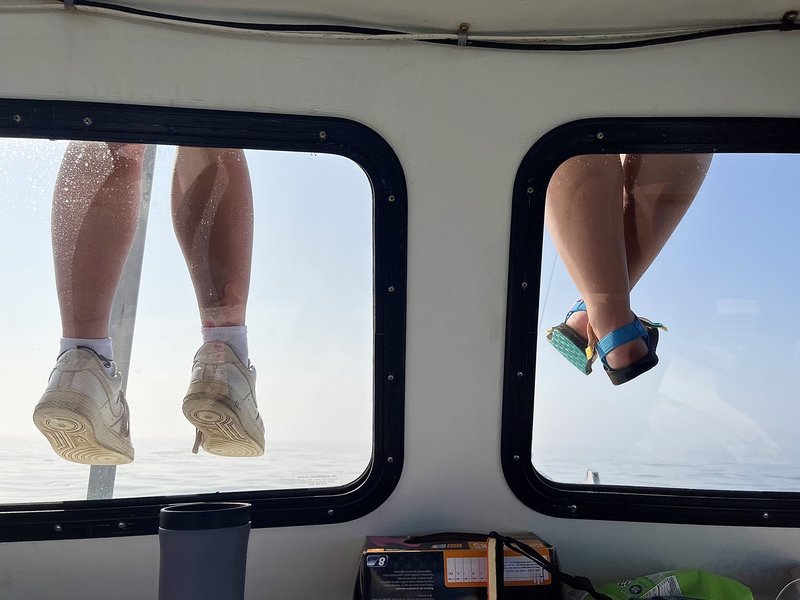
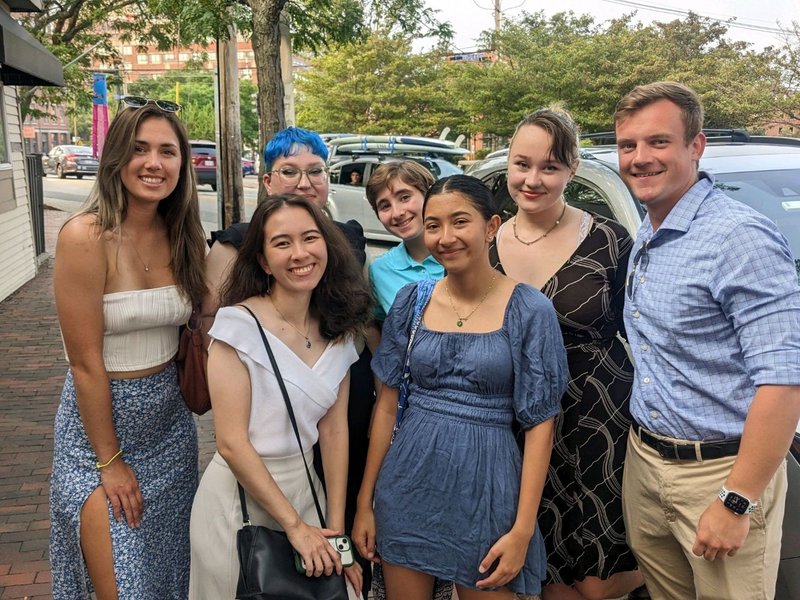
Sasha Milsky
My name is Sasha Milsky and I graduated with a major in Biology and minor in Classical Civilizations at Union College in 2022
I am passionate about studying trophic ecology and better understanding the ways in which species interactions are changing with a changing ecosystem. I am particularly interested in using stable isotope analysis to map these interactions between trophic levels.
I am working on looking at the CBASS data collected between 2014 and 2022 to see if there are any interactions between green crab presence and fish species diversity at the various sites. Here at QBC we also collaborate on the other projects being done in the lab and in the field so I am working on the oyster indexing project, micro plastics in oysters, and learning more about the SSO disease that is causing mass mortality of our oysters.
I have learned so many things this summer such as coding in R, how to maintain an oyster grant, how to use a seine net, how we can use green crabs for compost, the WHOI-MIT joint program and I am still learning things everyday here.
My advice to interested undergraduates is to definitely apply! The connections you will make and experiences you will have cast a wide net in marine biology (pun intended) to help you become familiar with what makes you excited. It is really just a great space to learn and ask lots of questions with other people who are passionate about similar things.
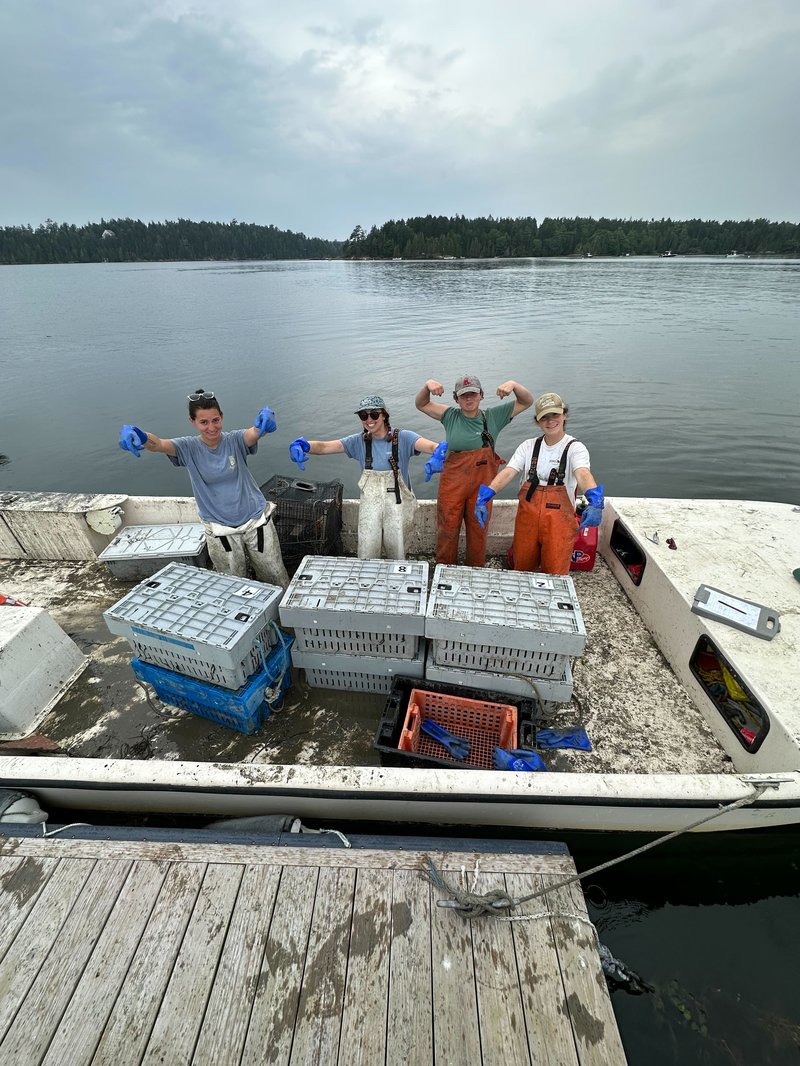

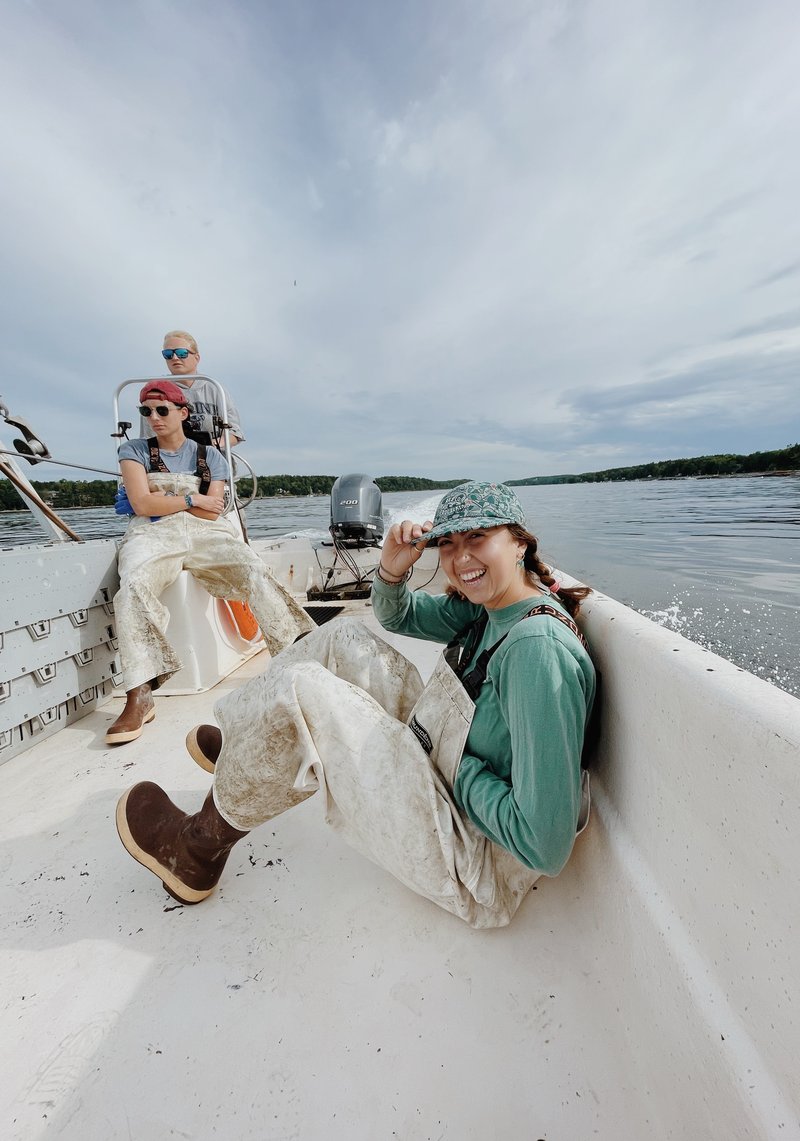
Sam Turner
My name is Sam Turner and I attended Hood College where I am completing a double major in economics and mathematics.
I find myself particularly drawn to probability and statistics because it aids in understanding difficult economics research questions.
This summer I worked in Kanae Tokunaga’s Coastal and Marine Economics lab at GMRI where I researched the impact climate change has had on the quota prices of northeastern groundfish. This research project was quite challenging which means that I learned a ton about modeling techniques, their assumptions, probability distributions, etc. But beyond research I’ve learned a lot about how GMRI and other non-profits operate and what it means to work in one.
I would advise anyone interested in the REU program at GMRI to apply even if you don’t think that you’re the perfect fit. My background coming into this REU was only tangentially related to climate change and marine systems. However, I have come to see this as a strength and not a weakness because it meant I brought a different perspective to everything.
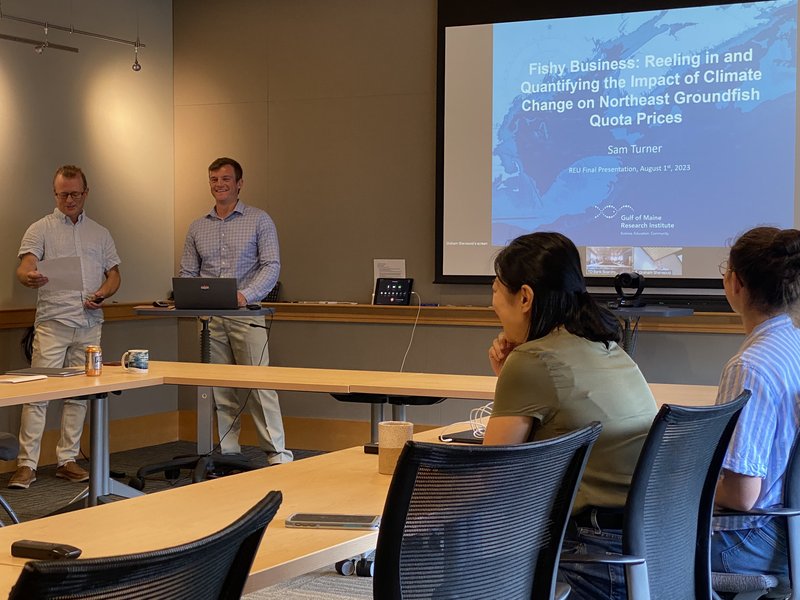
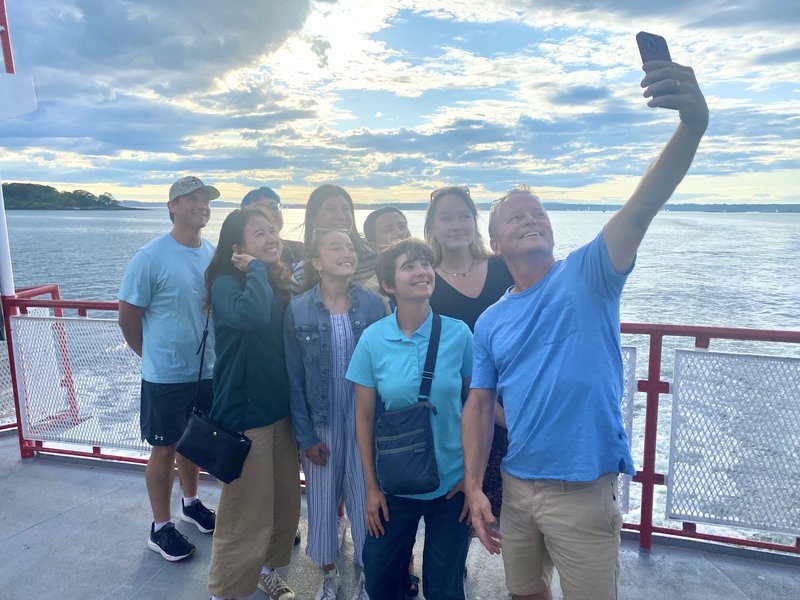
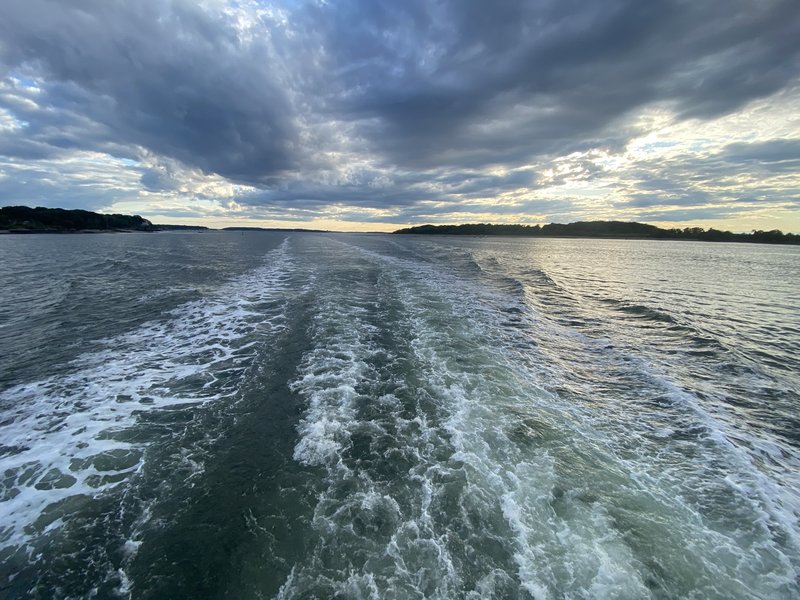
Mackensie Shears
My name is Mackensie Shears and I am studying at Ball State University in Muncie, Indiana.
My passions lie in studying education and biology, specifically the science of student engagement and motivation in respect to the learning sciences, and herpetology and marine biology in respect to biology.
I am working as an REU intern in the GMRI Learning Science lab with Amanda Dickes and Eliza Jacobs. My research focuses on the teacher perspective of engagement and inquiry-based activities.
I have learned a lot about time management and what all goes into the research process. I also knew nothing about fisheries prior to coming here, and it's safe to say my interest is piqued! We have a great team at GMRI that breaks down all the intricacies of fisheries for everyone to get at least a baseline understanding.
My advice would be to explore! I have never been to the Northeast but even if you're from around here, it doesn't hurt to wander. Portland is a great city to navigate, but even making plans with other interns to go hiking or to the beach is a great bonding activity you'll never regret.
Interested in joining our next REU cohort?
You can take part in our work and contribute to our understanding of climate change and its impacts on our coastal and marine ecosystems, communities, and industries. We pair students with GMRI researchers engaged in a range of climate, ecosystem, fisheries, oceanographic, economic, social science, science-of-learning, cognitive science, and interdisciplinary studies. Students then have the chance to work with their mentors to design and conduct an intensive 10-week independent research project.



